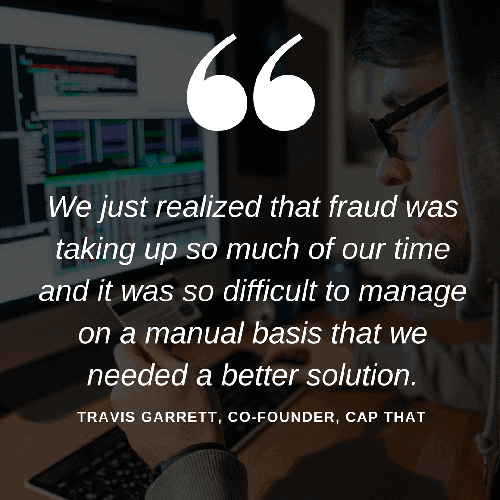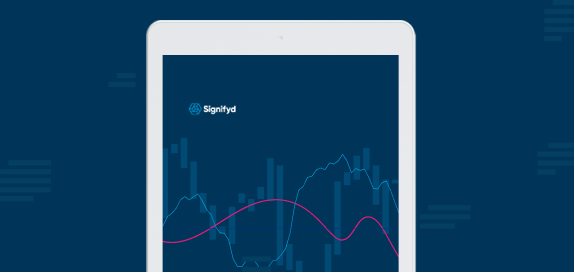Cap that: The 7-year old company that brings ideas to life
Whether it’s Cher, Ozzy Osbourne or the hip-hop artist Common, when Travis Garrett punches the clock in the morning there are usually some very interesting people in the waiting room. “Everyone’s a very strategic thinker and trying to accomplish a similar goal,” says Garrett, co-founder and creative director of Cap That, a seven-year-old Los Angeles-based ecommerce company that brings to life the ideas of artists, athletes, celebrities, influencers and brands. “All of our customers are entrepreneurs themselves.”
Capthat.com’s 150 websites are prime online locations for celebrity swag, like T-shirts from the 90s punk rock group Green Day, music from the indie pop duo The Bird and The Bee, and CDs, DVDs and vinyl by Old Blue Eyes, Frank Sinatra. For example, for $72 customers can buy a full box of Sinatra plus four exclusive postcards.
“We look at it as a partnership. We don’t acquire any rights,” says Garrett. “We’re in this with the artist. We work very closely with them and their teams. All we ask is for them to come to us with an idea.” Garrett and his team design, develop and maintain the artists’ websites. They also design and manufacture the products they sell online. And they handle inventory.
But adoring fans aren’t the only ones who like Cap That’s clients. Online thieves like them, too. “As the popularity of the site and the artist grow, and the website features more items, more and more people are looking for a quick buck,” says Garrett. “They’ll try a series of purchases and see if it works — like smaller amounts that you’re probably not going to notice, so the order doesn’t raise any red flags.”
“A high-end jacket for around $100 to $200 retail – that’s a big target item. Some of the boxed music gets targeted a lot. It’s easier to spot on a higher-priced item because that’s something you want to double check before you ship out. The $30 and under orders are harder and involve more hassle. Fraudsters know there’s a resale market for these items along with streetwear. Things are limited, things sell out. So, if they can get it for free, they’re turning a huge profit.”
The challenge: Online thieves

An organized fraud attack last holiday season was the last straw, says Garrett. “There was a scam going on in Miami, so in the short term we just stopped shipping any order with a Miami shipping address.”
“They had multiple accounts. Everything was checking out. The emails actually matched the name and were attached to legitimate addresses, but it was all stolen credit card numbers. They would ship to Miami and then take the goods to South America to resell. It was crazy. That’s when we finally put preventative measures in place, because that happened over just a couple of days.”
“Shopify’s filters weren’t picking it up because everything checked out. Everything looked like a legitimate order, except that it was getting shipped to Miami; all the credit card numbers matched; the CVV numbers matched; the addresses were real and the email addresses contained the person’s name. And they had between 25 and 30 different users buying,” says Garrett. “There was no fraud alert going off on these orders.”
Picking out bad orders was taking up half the day of three people, says Garrett. “I would tell them, ‘Make sure the emails are legit. Make sure the CVV number matches. Check it if the address looks funny, or if it’s a huge order amount…’ Just common things that you can see pretty quickly. Anything that looked suspicious. Any highlighted number. Anything that Shopify instantly flags as red, they would go and review, double check, make sure the address was legit.
They would call people on the phone if they were unsure and they couldn’t verify the address. and send an email out to people who had an email address that kind of looked suspicious. They did whatever they could to honor the customer. But at the same time, if anything looked overly suspicious and they couldn’t get a hold of the person in a timely matter, they’d just go ahead and refund the order so we wouldn’t have to deal with the chargeback. Of all the suspicious orders, I would say that two of them were legit.”
Cap That’s first line of defense before Signifyd was to manually pick out the fraud and then ban the fraudulent user from the site. But as soon as they did that a new, similar account would appear. So, they rewrote their code to automatically cancel orders from Miami. Only if a rejected customer reached out to the company would Cap That consider processing their order. “It was literally four or five hours a day of me going through orders individually, cancelling them,” says Garrett.
“It wasn’t a big deal when it was one or two. But when you wake up in the morning and your emails are 12 or 15 in a row – you’re looking at the number and you’re like ‘Wow, something needs to happen right now.’ Step one was me personally going through and cancelling things as fast as I could – as soon I saw them come in. And then, after one or two days of that, — six or seven hours — I said ‘This is too much. I need to be focused in other places. Let’s figure out a solution to this.’”
The solution: Guaranteed Fraud Protection
That solution was Signifyd and their ability to guarantee every Cap That transaction against fraud or chargebacks. Signifyd leverages real-time machine learning and incorporates external 3rd party data to augment its own data from more than 10,000 merchants. With superior data and specialized risk analysts, Signifyd can instantaneously approve and guarantee more orders than Garrett and his customer service team could manage themselves.
“Our fraud is now low. Our chargeback rate is not even a quarter of a percent… It’s basically nothing,” says Garrett. “I think we even had a few discrepancies at first, but now we’re running in tandem with Signifyd’s team.”
He says his team is able to accomplish so much more now that they are not consumed with investigating suspicious orders. “We’re not cancelling orders, so that always makes people happy.”
Cap That got its start when co-founder David Hibbard was inspired by a piece of Rolling Stone cover art blown up really big on canvases.
And he was like, ‘Wow, it would be really cool if you could have a canvas of your favorite scene from a Rolling Stones concert or music video or your favorite film or sporting event,” Garrett recalls. “And then he said, ‘I bet other people are probably going to be interested in this, too.’ We kind of worked backwards from that.”
The company started by manufacturing merchandise emblazoned with the images. From processing pictures of music videos, the company segued into facilitating the merchandising needs of the musicians themselves. “We cut our teeth in the music industry and while doing so they were asking us to take on their more traditional ecommerce stores. No one was selling online and we had a responsive fulfillment strategy,” says Garrett.
“If you care about your business and you’re starting to grow, Signifyd is definitely necessary,” says Garrett. “There’s so much that is affected by chargebacks, including your processing rate, and there are so many little hiccups that can derail your shipping when you’re growing. This is just something that will give you ease of mind. It becomes something that just happens and you don’t even have to think about it anymore.”
“I think a lot of people don’t understand how serious chargebacks are. How unfair it is to the seller and what they need to do to protect themselves against fraud. A lot of businesses just ship everything and they have no idea,” he says. With Signifyd on the job Garrett can turn his attention to other priorities, like growing his business.
“We have seven or eight new artists we’re on-boarding next week – getting the site ready, launching the site, getting the product line ready. So each week brings new challenges. I’m looking forward to it.”










